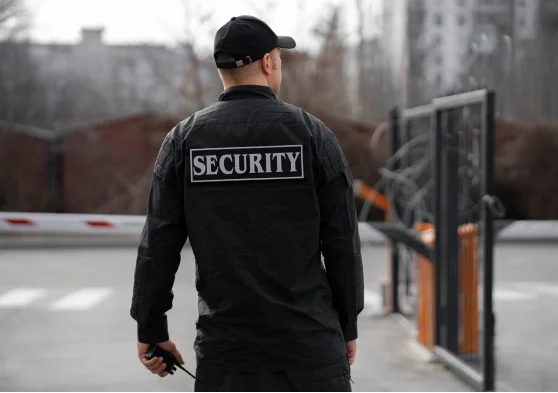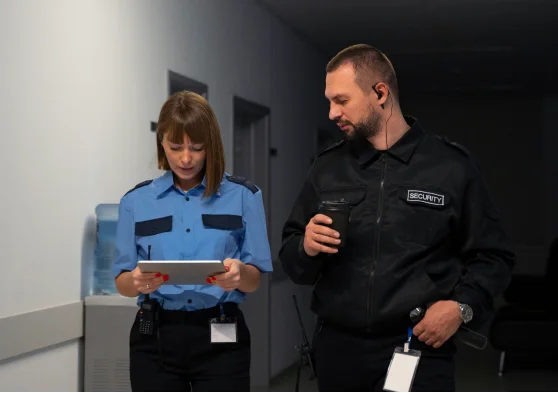Docks and marina security in New York is crucial, given the high volume of vessels, valuable equipment, and the general public’s access to waterfront areas. As New York is a major port city with many marinas, yacht clubs, and docks, ensuring safety and security is a top priority for marina owners, boaters, and visitors. Here’s an overview of what dock and marina security typically entails in New York:
- Access Control
- Gated Entrances & Restricted Access: Marinas and docks often have secure entry points that limit access to authorized individuals only. This can include gates, fences, or walls around the marina or dock areas. Access control ensures that only boat owners, authorized personnel, and registered guests can enter these areas.
- Key Fobs or Access Cards: Many marinas use electronic access cards or key fobs for entry, especially for private docking areas or high-end marinas. These cards help monitor who enters and exits the premises and can be easily disabled if lost or stolen.
- Security Personnel at Entrances: On-site security guards or marina attendants may be stationed at key points to check for proper identification, verify visitors, and monitor access to docks, boat slips, and storage areas.
- Surveillance and Monitoring
- CCTV Cameras: Surveillance cameras are essential in marinas to monitor activities around the docks, parking areas, and common spaces. CCTV footage can be used to identify suspicious behavior, monitor entry and exit points, and provide evidence if any security incidents occur.
- Real-Time Monitoring: Security staff may monitor cameras 24/7 or have remote access to camera feeds. In some cases, marina security teams will monitor boat slips and public areas both in real-time and through recorded footage.
- Night Vision Cameras: Given that marinas can be accessed at night or during off-peak hours, night vision or infrared cameras are often installed for 24/7 security, ensuring that even in low-light conditions, activity is visible and can be recorded.
- Boat Security
- Docking and Slip Security: Individual boat slips are often equipped with security measures like padlocks or electronic locking systems to prevent unauthorized access to boats. This can also include boat security chains or cables to prevent theft or tampering.
- Motion Sensors and Alarms: Many marinas install motion sensors and alarm systems around the docks to detect any unusual movement or unauthorized boarding of boats. These sensors can trigger an alarm that alerts marina security or sends a notification to boat owners.
- Boat Tracking Systems: For additional protection, boat owners may opt to install GPS tracking systems on their vessels. This allows boat owners or marina staff to track the boat’s location in case of theft or if it’s moved without authorization.
- Fire and Environmental Safety
- Fire Suppression Systems: Fire safety is a critical consideration in marinas due to the presence of boats, fuel storage, and electrical systems. Fire extinguishers, sprinkler systems, fire alarms, and boat-specific fire suppression equipment are often strategically placed around docks and vessels.
- Emergency Access Points: Docks and marinas should have well-marked and unobstructed emergency exits, evacuation routes, and safe zones. In the event of a fire or other emergency, these features help ensure that boaters and marina staff can quickly evacuate or seek shelter.
- Oil Spill and Environmental Protection: Marinas are required to have environmental protection protocols, including measures to address oil spills or hazardous material leaks. Security personnel are often trained to respond to environmental hazards, preventing contamination of nearby waters.
- Lighting and Visibility
- High-Quality Lighting: Proper lighting is essential for security, especially for marinas that are open 24/7. Adequate lighting in docking areas, parking lots, walkways, and common spaces helps deter criminal activity and provides visibility for boat owners and staff at night.
- Motion-Sensor Lights: To enhance security without consuming excessive energy, many marinas use motion-sensor lights that are triggered by movement. This not only illuminates areas when necessary but also signals to security staff that there may be unauthorized activity occurring.
- Spotlights and Floodlights: For high-traffic or high-value areas (such as luxury yacht docks), high-powered spotlights or floodlights may be used to ensure comprehensive visibility across large sections of the marina.
- Personnel and Security Patrols
- On-Site Security Guards: Many marinas, particularly those in high-traffic areas or upscale neighborhoods, employ security guards who patrol the property, monitor the surveillance systems, and provide assistance to boaters. Guards may also respond to emergencies, such as medical situations, theft, or disturbances.
- Night Patrols: Security personnel may perform frequent patrols of the dock areas, especially at night, when the marina is less busy and more vulnerable to theft or break-ins. Some marinas also deploy security patrol boats to monitor the waters around the marina.
- Emergency Response and First Aid
- On-Site First Responders: Some marinas have on-site medical teams or first aid kits to address potential accidents or injuries that may occur on boats, docks, or in the water.
- Lifeguard and Rescue Equipment: In marinas with swimming areas or water access points, safety equipment such as life rings, life jackets, and rescue boats may be readily available. This ensures swift response in the event of a water emergency or drowning.
- Vehicle and Trailer Security
- Secure Parking Areas: Marinas often have designated parking areas for vehicles and trailers that are used to transport boats. These areas are typically secured with gates, fencing, and surveillance to prevent theft or vandalism of vehicles or trailers.
- Trailer Storage and Locking Systems: For boaters who need to store their trailers, marinas may offer secure trailer storage areas that are locked and monitored by security personnel. Some marinas provide additional trailer security features, like anti-theft devices and tracking systems.
- Public and Resident Safety
- Security at Public Marinas: For marinas that cater to the general public, such as those with boat rentals or public docks, there is an increased focus on ensuring safety for both boaters and visitors. Public spaces within the marina are often well-patrolled and regularly monitored to deter crime and ensure a safe experience for everyone.
- Resident-Only Areas: Some marinas are gated and offer private docking areas for residents or members of yacht clubs. These areas are generally more secure, with restricted access and higher levels of monitoring to protect personal property and boats.
- Insurance and Liability Coverage
- Insurance for Boats and Docks: Security measures play a significant role in reducing risks and lowering premiums for both boat owners and marina operators. Many boat owners are required to have insurance for their vessels, which can be more affordable when the marina has robust security protocols in place.
- Liability Protection for Marina Operators: Marinas that invest in security measures reduce their liability risks. Ensuring that proper security is in place can protect marina operators from claims related to theft, damage, or personal injury.

Benefits of Marina Security in New York:

- Theft Prevention: With the combination of surveillance, access control, and security personnel, marina security effectively prevents theft of boats, equipment, and personal property. This is especially critical given the high value of many vessels and maritime equipment.
- Reduced Vandalism: The presence of security guards and surveillance cameras reduces the likelihood of vandalism, which can be a concern in waterfront areas.
- Emergency Readiness: Security teams are prepared to respond quickly in the event of emergencies such as fires, medical incidents, or boat accidents. Fast response times can save lives and minimize damage.
- Peace of Mind for Boat Owners: Boat owners can relax knowing that their vessels are safe and secure, allowing them to enjoy their boating experience without worrying about theft or damage.
- Environmental Protection: Security personnel are trained to handle environmental hazards, such as oil spills or hazardous material leaks, ensuring that the marina stays safe for both boaters and the surrounding ecosystem.


In summary, marina and dock security in New York is essential for protecting valuable boats, equipment, and the safety of those who frequent the waterfront. With advanced surveillance, access control, security personnel, and emergency response systems, marinas can offer a safe and secure environment for boat owners and their guests. While there are costs involved in maintaining these security systems, the peace of mind they provide is invaluable for both marina operators and boaters.
